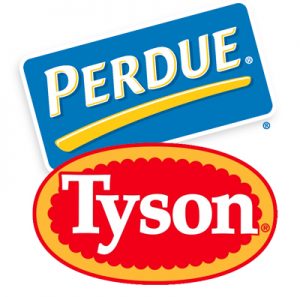 Top Class Action Lawsuits
Top Class Action Lawsuits
Getting Burned on Fire Damage Claims? Los Angeles resident, Ismael Frias, believes so. He filed a bad faith insurance class action lawsuit against a Farmers Insurance Co., unit alleging it illegally limited coverage of wildfire smoke damage by not providing adequate notice that it had changed its policies and stating that the damage was “not actual fire damage.”
Frias, who lives in the suburb of Sylmar, states in his Farmers lawsuit complaint that Mid-Century Insurance Co., applied a “Wildfire Smoke Sublimit” of $5,000 to his claim under his homeowner’s insurance policy, without clearly notifying him. Mid-Century allegedly added the sublimit to the policy when Frias renewed in March, but failed to clearly notify him of the change. Additionally, the suit states that the sublimit is in violation of California insurance law which standardizes fire damage policies.
“The purported $5,000.00 Wildfire Smoke Sublimit violates Insurance Code section 2071, is not reflected on the declarations Page, is not plain, clear and conspicuous, and is unenforceable,” the lawsuit states. According to the complaint, Frias claimed for damages he experienced as a result of a wildfire on July 23, 2016. On that date, the massive Sand Canyon Fire was raging through the mountains north of Sylmar. Ultimately, the fire scorched almost 65 square miles before fire crews were able to contain it in August, according to the National Wildfire Coordinating Group.
Frias received a letter from Mid-Century in September, stating the damage to his home wasn’t “actual fire damage” and thus was subject to the $5,000 sublimit, according to the lawsuit.
Frias is claiming breach of contract, breach of the implied covenant of good faith and fair dealing, and violation of California’s Unfair Competition Act.
The lawsuit seeks to establish a class of California homeowners who had policies containing the wildfire smoke sublimit and who had submitted claims for wildfire odor, soot, smoke, char or ash damage. He also seeks compensatory and punitive damages, along with attorney’s fees, according to the complaint.
“As a result of defendants’ conduct, plaintiff and members of the class and subclass have been damaged, including but not limited to, paying insurance premiums for coverage rendered illusory by the unlawful Wildfire Smoke Sublimit,” the complaint states.
Top Settlements
It’s VW Pay Up Time. It’s been a week of whoppers. Starting with a rather speedy settlement on the consumer end of the Volkswagen emissions scandal. Short version, a $14.75 billion settlement between consumers, the federal government and Volkswagen has been granted final approval. The deal includes an aggressive timeline for VW to begin buying back cars that have the infamous emissions cheating software, known as “defeat devices”.
Under the terms of the deal, VW will set aside $10 million to buy back its vehicles with the defeat devices from consumers.
Additionally, VW must spend $2.7 billion to mitigate the effects of the emissions from cars equipped the so-called defeat devices, and $2 billion over the next 10 years in projects that support the increased use of zero emission vehicles.
Starting in mid-November, Some 475,000 owners of affected VW and Audi 2.0L diesel vehicles will be able to seek buybacks of their cars or have them fixed. Additionally, most plaintiffs who bought their cars before last September, will receive payments of $5,100 to $10,000. About 336,000 car owners have registered for benefits under the settlement and only 3,300 have opted out, according to court papers signed by the judge.
Of note, 3.0 liter six-cylinder diesel vehicles equipped with the defeat devices are not included in this settlement. VW said it is still working toward a resolution with owners of those vehicles.
The multidistrict litigation is In re: Volkswagen “Clean Diesel” Marketing, Sales Practices and Products Liability Litigation, case number 3:15-md-02672, in the U.S. District Court for the Northern District of California.
Big Talc Powder Settlement. A $70 million award has been granted court approval for a woman in California who sued Johnson & Johnson (J&J) alleging J&J Talc Powder caused her cancer. The suit alleged “negligent conduct” in making and marketing its baby powder.
The case was brought by Deborah Giannecchini of Modesto, California, who was diagnosed with ovarian cancer in 2012. She is one of nearly 2,000 women who have filed similar lawsuits, and thousands more are under review by lawyers.
Giannecchini’s win follows earlier awards against J&J for $72 million and $55 million. The $72 million award was granted in February to relatives of a woman who died of ovarian cancer, and the $55 million award to an ovarian cancer survivor.
Talc is a mineral often used to absorb moisture in cosmetic products. Since the 1970s, studies have suggested that talc could be linked to ovarian cancer, according to the lawsuit. Lawyers argued that Johnson & Johnson knew of those studies but put profits ahead of human life by continuing to market their talc products for feminine hygiene use.
Well, that’s a wrap for this week. See you at the Bar!

 Top Class Action Lawsuits
Top Class Action Lawsuits